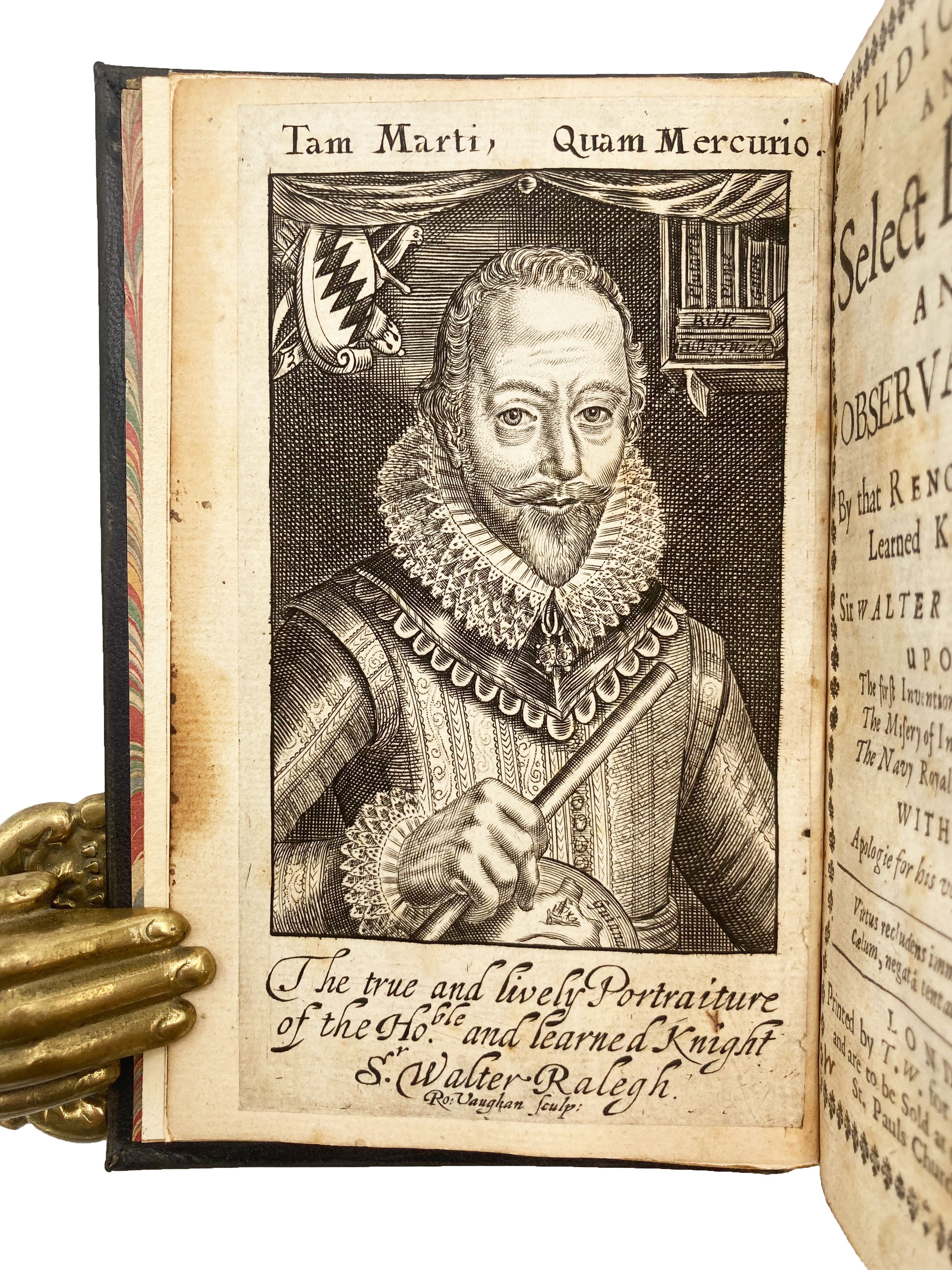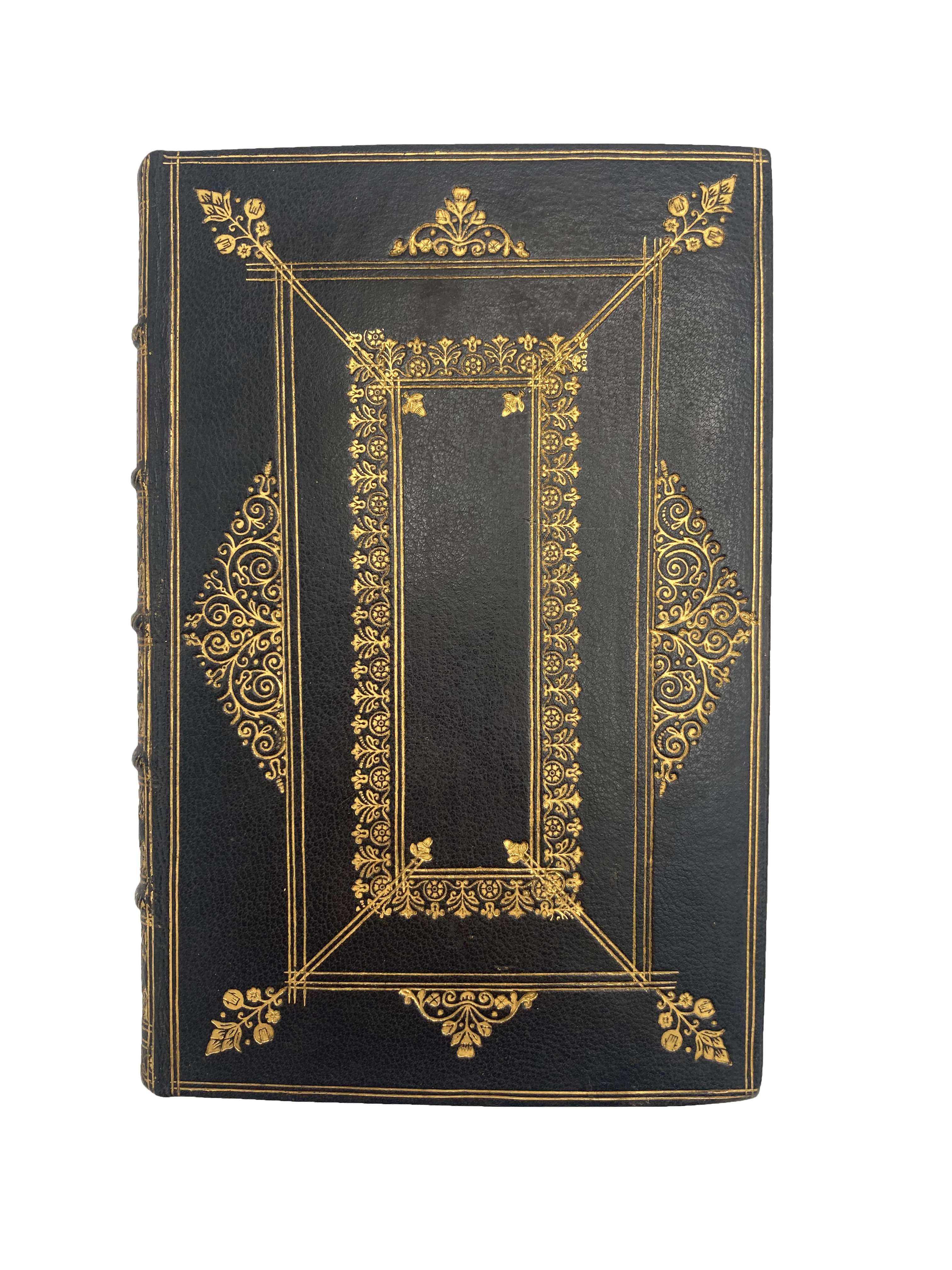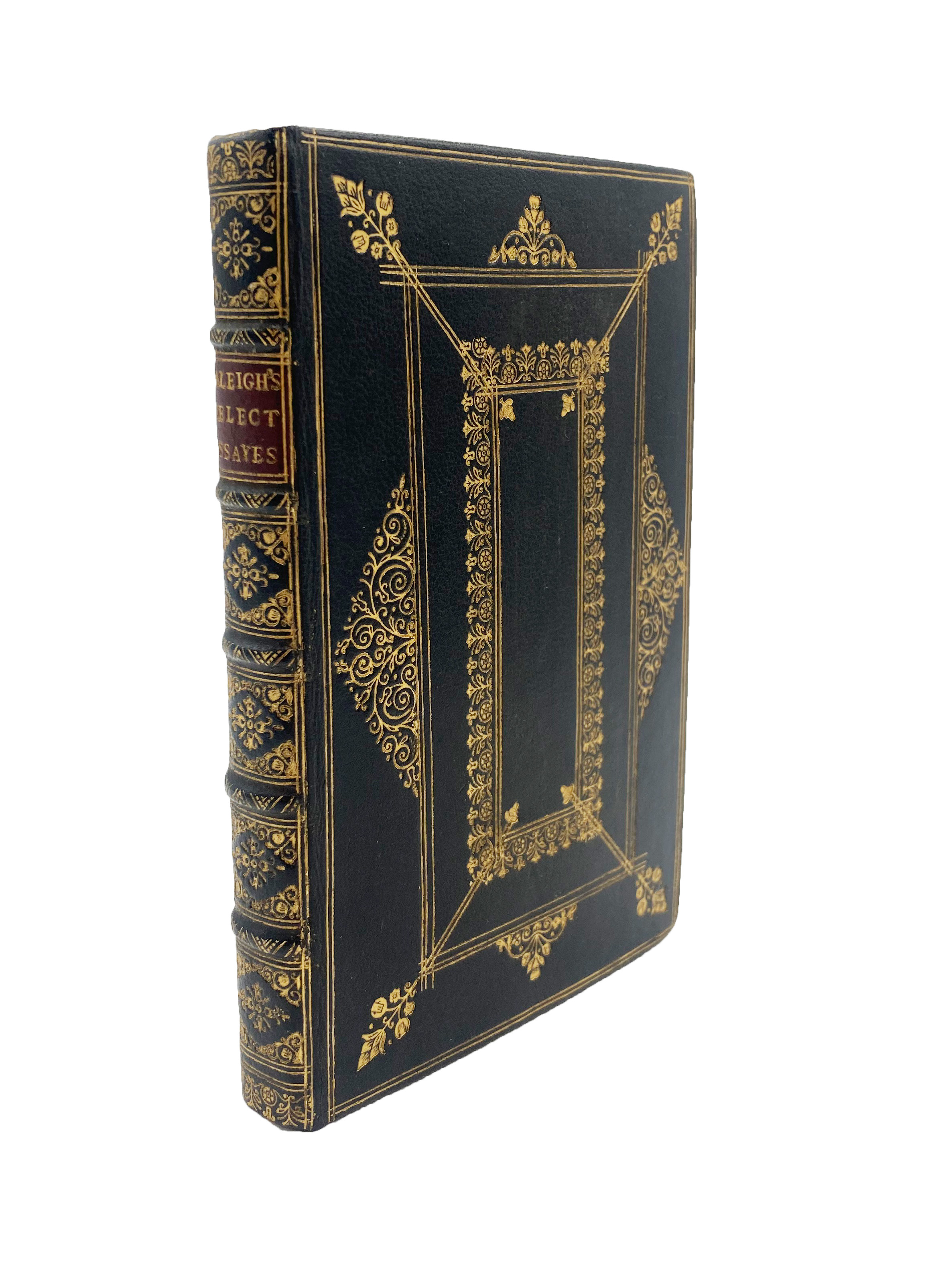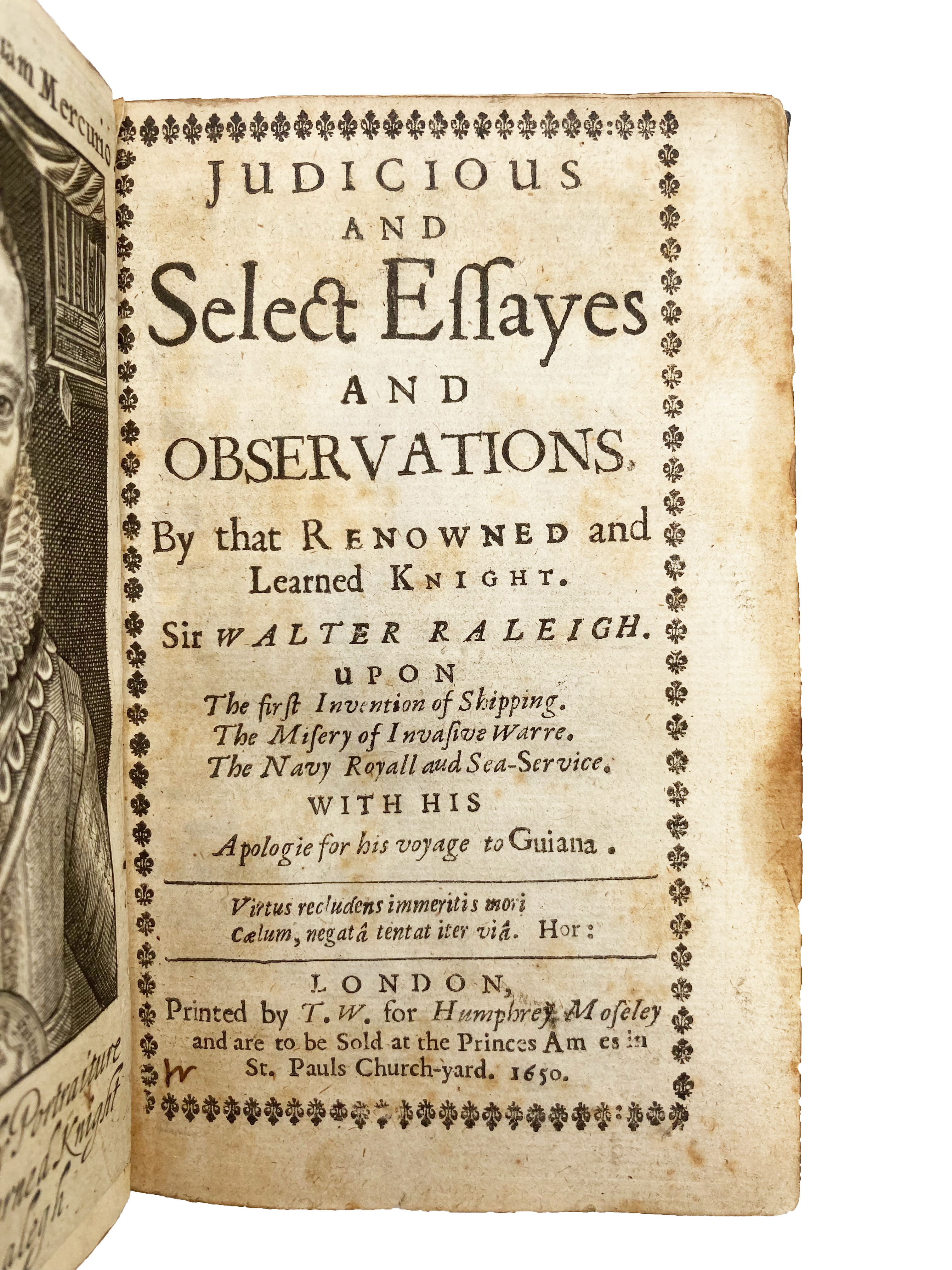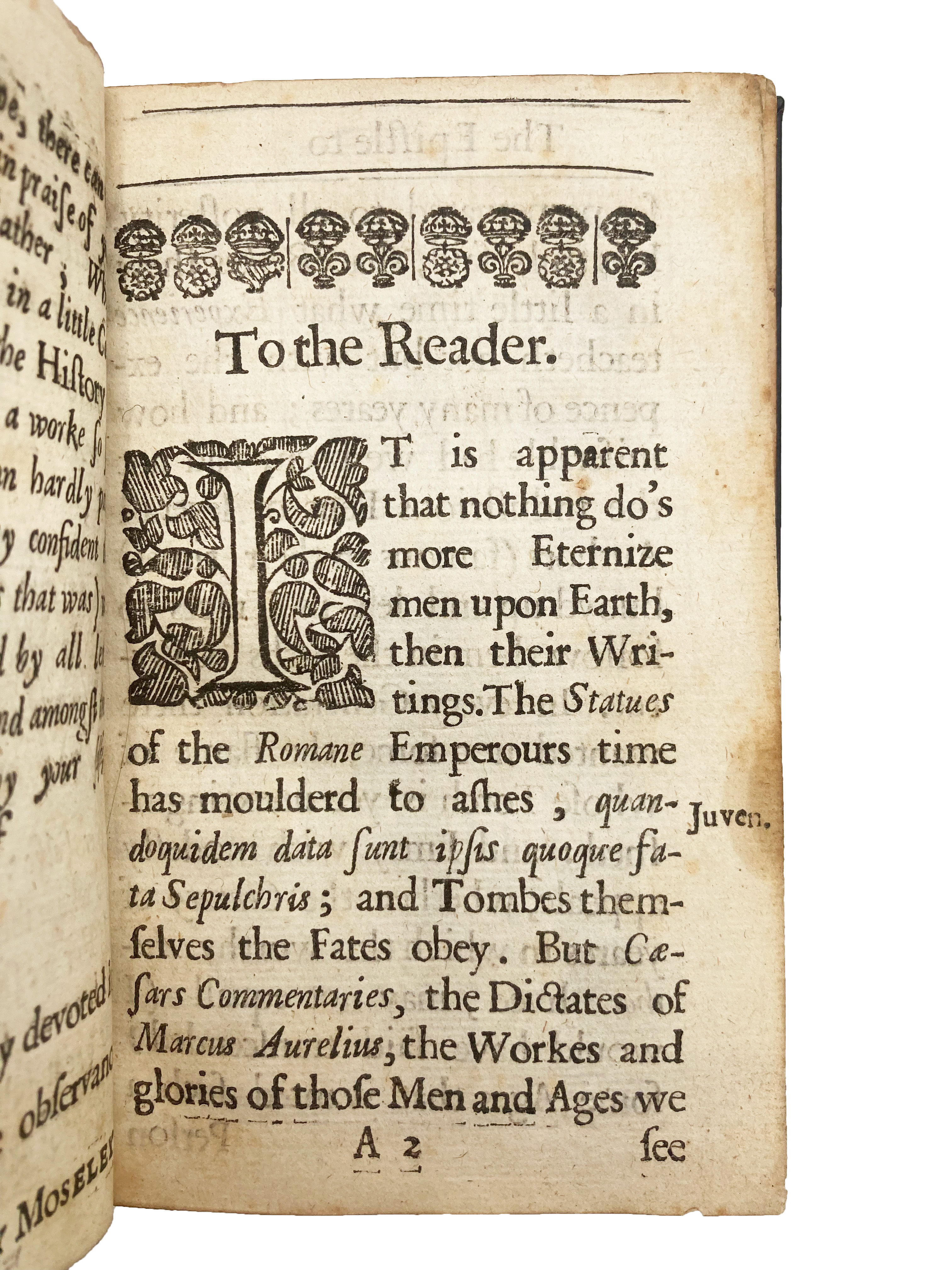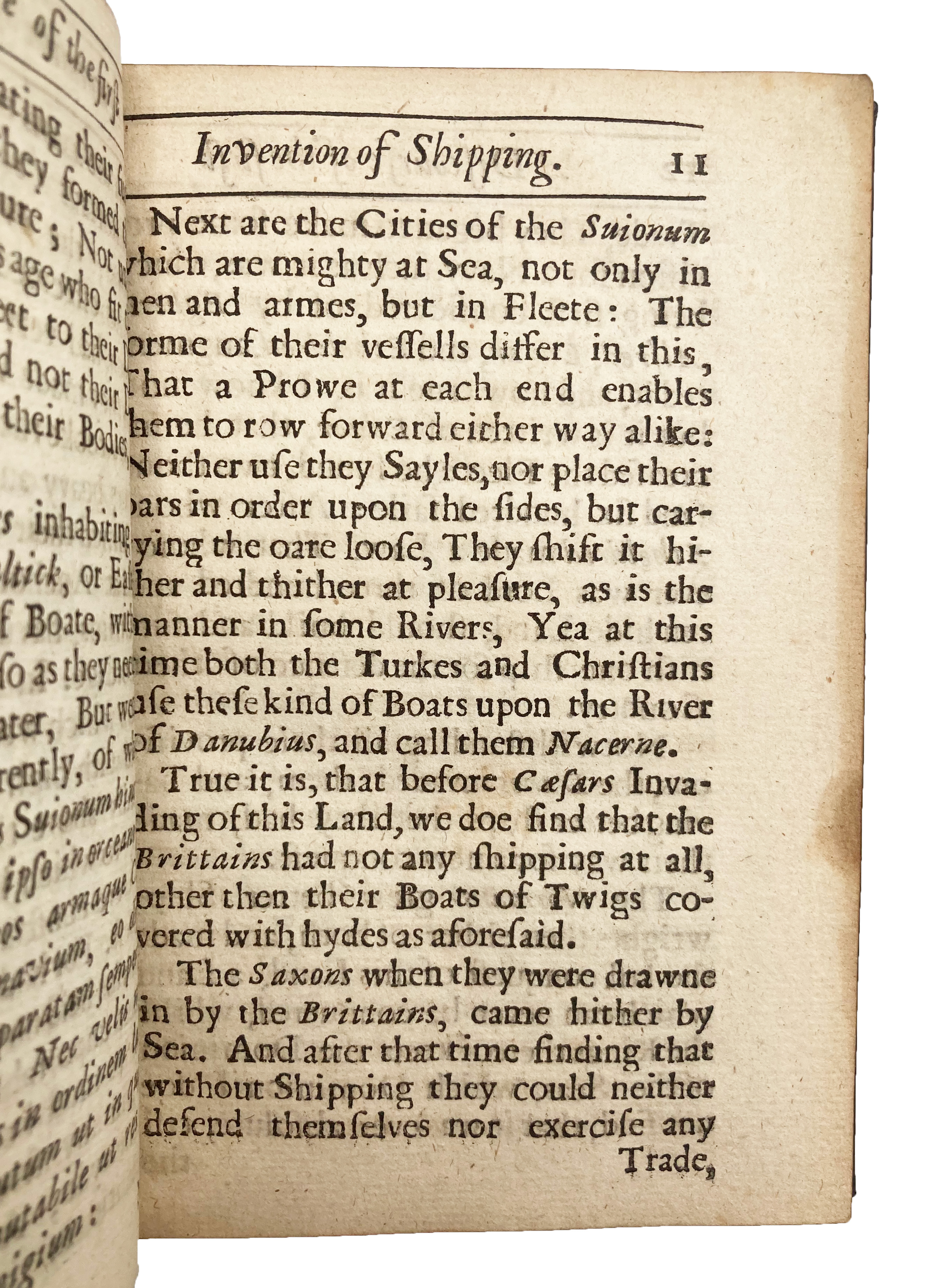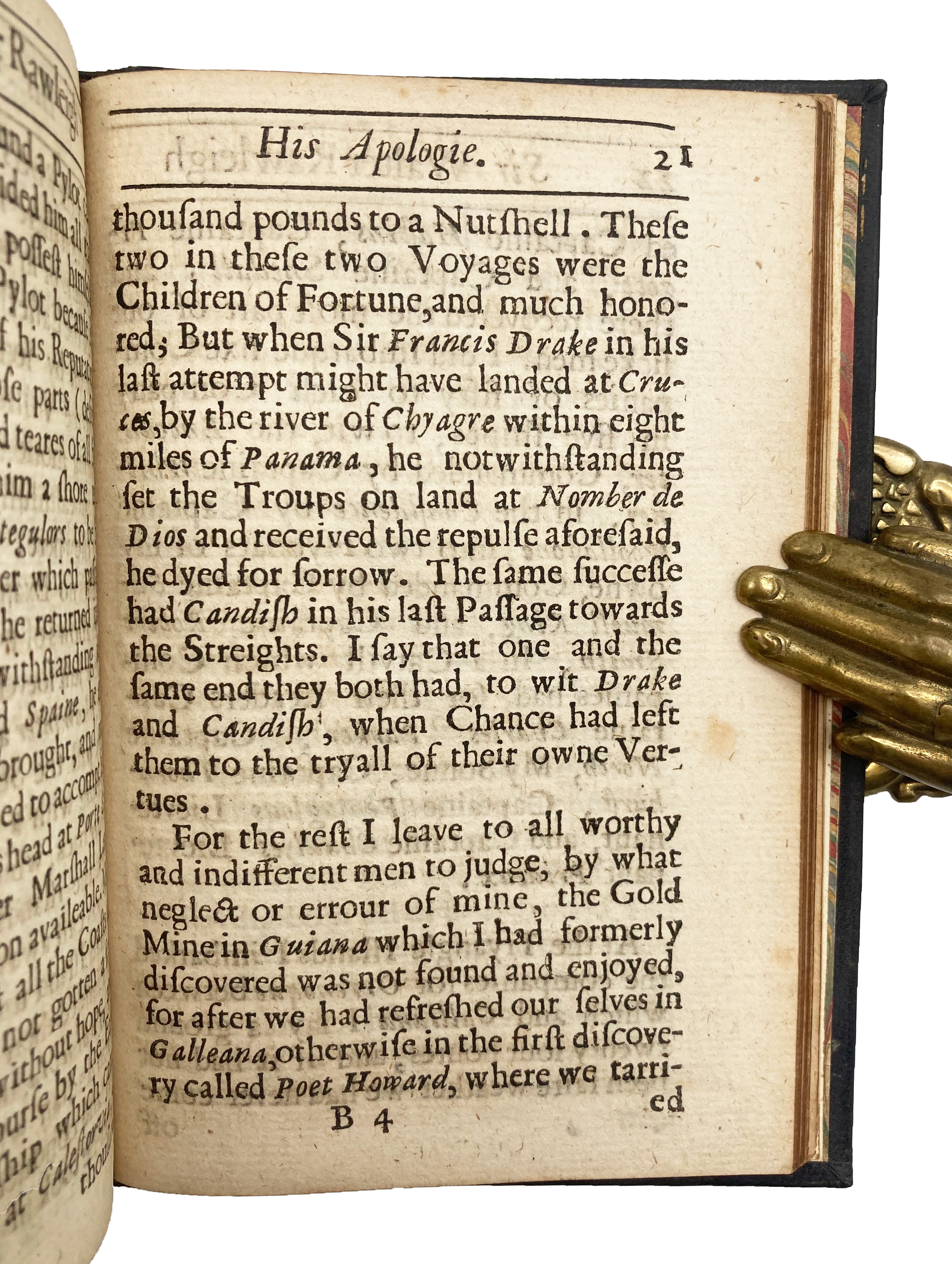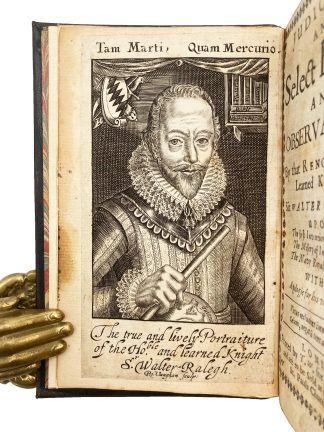RALEIGH, Sir Walter.
RALEIGH’S SECOND VOYAGE
RALEIGH, Sir Walter. Judicious and Select Essayes and Observations.
London, Printed by T.W. for Humphrey Moseley, 1650£4,850.00
FIRST EDITION. 8vo. pp. (x) 42 (ii) 4 (lxii [‘Misery of Invasive War’]) (ii) 46 (ii) 69 [i]. Engraved frontispiece portrait by Robert Vaughan tipped onto fly. T-p with typographical border, three further divisional t-ps, the last with typographical border and woodcut printer’s device. Woodcut initials, typographical headpieces. Blind oval stamp of the James B. Ford Library, Explorers Club, NY to E1. Final divisional t-p with C19 pencil and ink inscription to verso (‘He. Tilt’?), ms. ink numbers to foot of A1r. Occasional pencil notes to margins. Fine modern panelled black morocco in period ‘cottage roof’ style, panels and ornaments gilt, spine in compartments gilt, red morocco label, raised bands. Light foxing, mostly to margins, printer’s ink smudging to blank foot of C2v, a very good copy.
First edition of Raleigh’s posthumous Essays in an attractive contemporary black morocco binding. The subjects are the Invention of Shipping; the Misery of Invasive War; Observations on the Navy; and Raleigh’s Apology for his Voyage to Guiana. The latter is an account of his second voyage to South America in 1617 in search of the fabled El Dorado. Raleigh defends his actions against numerous accusations of incompetence, selfishness and wanton violence. He attributes the failure of the voyage to his crew having consisted of ‘the very scumme of the World: Drunkards, Blasphemers,’ etc. Raleigh also denies rumours, spread by an ‘hypocriticall thief’ who had been Raleigh’s disgruntled first mate and by an ‘ungratefull youth’ who had been his cabin boy, that he had set sail from England with a fortune in his ship, only pretending to be searching for a goldmine in Guiana. Such a rumour left him in danger, he claims, of being marooned every time he went ashore, to be eaten by wild beasts, die of starvation or be captured and flayed alive by the Spanish. The account describes the attack on Spanish forces on the River Orinoco in which Raleigh’s son was killed, and which contravened a peace treaty signed by James I with Spain, leading to Raleigh’s execution. It contains the text of a letter to Raleigh from his loyal lieutenant Lawrence Kemys, on whom Raleigh blamed the attack and the subsequent failure to effectively operate a goldmine captured from the Spanish, with an account of Kemys’s suicide immediately thereafter. Finally, there is a short statement by Raleigh made before his execution addressing attempts to induce him to escape and other charges.
A small number of copies have an added 4 ll. publisher’s advertisement at end (separate collation) not present here.
ESTC R9599. Alden 650/176. JFB R21. Sabin 67561. JCB 694. Brushfield 218. Pforzheimer 822. Not in Church.


